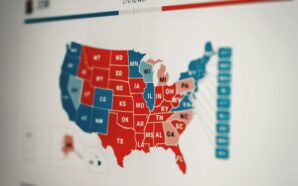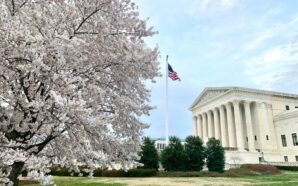

Credit: Unsplash
The Federal Reserve announced today that all 31 banks participating in its annual stress test have demonstrated their ability to withstand a severe hypothetical economic downturn while maintaining their capacity to lend to consumers and businesses.
In this year’s stress test, each bank met the requirement to absorb losses and retain capital above the minimum levels mandated by regulatory standards. The stress scenario included assumptions of a surge in unemployment to 10%, a 40% plunge in commercial real estate values, and a 36% drop in housing prices.
“This year’s results show that under our stress scenario, large banks would take nearly $685 billion in total hypothetical losses, yet still have considerably more capital than their minimum common equity requirements,” said Michael Barr, the Fed’s vice chair for supervision. “This is good news and underscores the usefulness of the extra capital that banks have built in recent years.”
The stress test, an annual regulatory exercise, ensures that banks maintain adequate reserves for potential bad loans and determines the limits on share repurchases and dividends. This year’s test included major institutions such as JPMorgan Chase, Goldman Sachs, American Express, and regional lenders like Truist.
Despite the aggregate capital levels falling by 2.8 percentage points—a steeper decline than last year’s—no bank faced significant challenges from the test’s assumptions, which were consistent with those used in the 2023 stress test. The decrease in capital levels is attributed to the banking industry’s increased holdings of consumer credit card loans and downgraded corporate bonds, coupled with squeezed lending margins compared to the previous year.
“While banks are well-positioned to withstand the specific hypothetical recession we tested them against, the stress test also confirmed that there are some areas to watch,” Barr added. “The financial system and its risks are always evolving, and we learned in the Great Recession the cost of failing to acknowledge shifting risks.”
Additionally, the Fed conducted an exploratory analysis on funding stresses and a potential trading meltdown, focusing on the eight largest banks. The results showed that these banks could withstand a sudden increase in deposit costs alongside a recession. In a scenario where five large hedge funds face collapse, the big banks would incur losses between $70 billion and $85 billion. The Fed noted that while the banks have significant exposure to hedge funds, they are resilient to various trading book shocks.
-
As the clock ticks down to the pivotal election, America finds itself navigating a political minefield, with both parties...
-
Joe Biden Passes Questioning Remarks Towards Japan President Joe Biden recently made remarks at a Washington, D.C. fundraiser, where...
-
Federal investigation targets McKinsey’s consulting practices with opioid makers. McKinsey & Co finds itself at the center of a...
-
An appeals court in Texas has delivered a significant victory to attorney Sidney Powell, upholding a state court judge’s...
-
Bank of America has reported impressive first-quarter earnings, surpassing analysts’ estimates for both profit and revenue, driven by better-than-expected...
-
President Joe Biden’s reelection strategy takes a surprising turn as the Rust Belt, not the Sun Belt, emerges as...
-
In a significant legal development, U.S. District Judge Aileen Cannon has declined former President Donald Trump’s request to dismiss...
-
Major Collision Causing the Collapse of the Bridge The recent collapse of the Francis Scott Key Bridge in Baltimore,...
-
Donald Trump is on the brink of a crucial deadline in a business fraud case, with just a few...
-
Sylvia Gonzalez, a newly elected city council member in a small Texas community, was embroiled in controversy when she...
-
Is TikTok Getting Banned in the States? The United States House of Representatives has voted with bipartisan support to...
-
Ken Griffin, the founder and CEO of Citadel, emphasized the importance of prudence in the Federal Reserve’s strategy regarding...




















